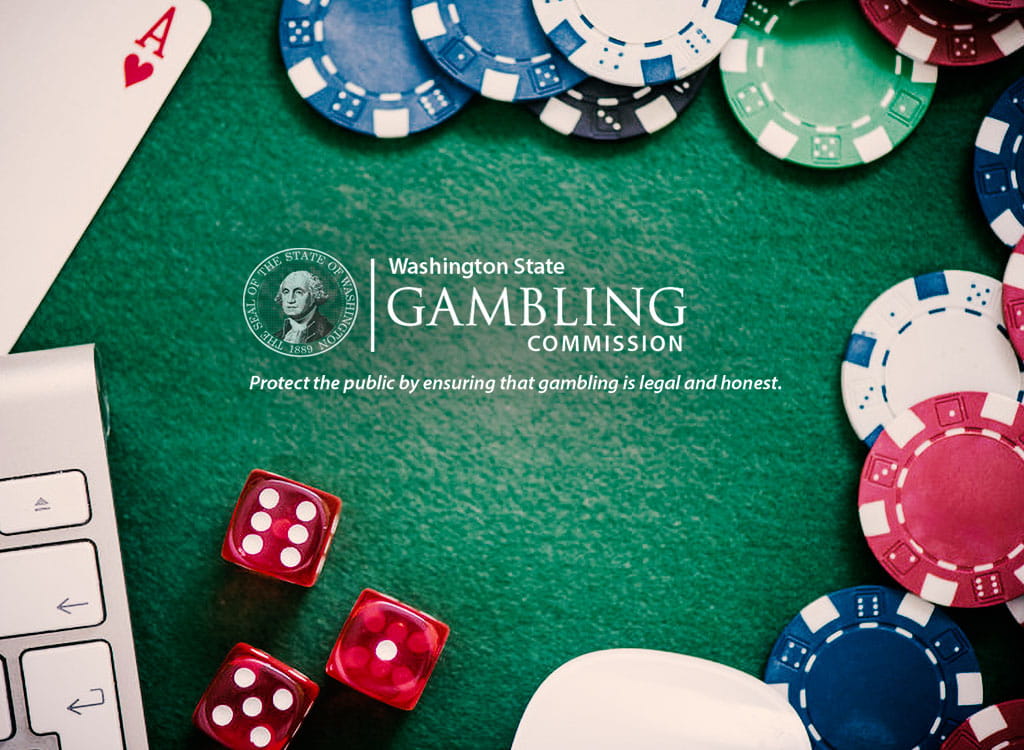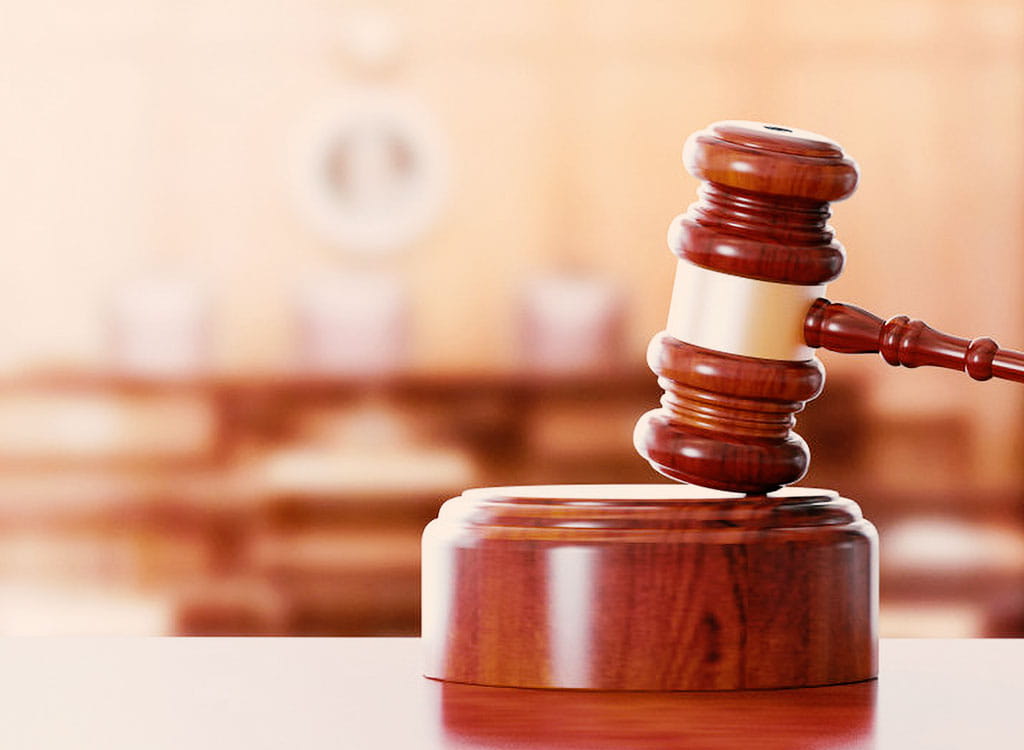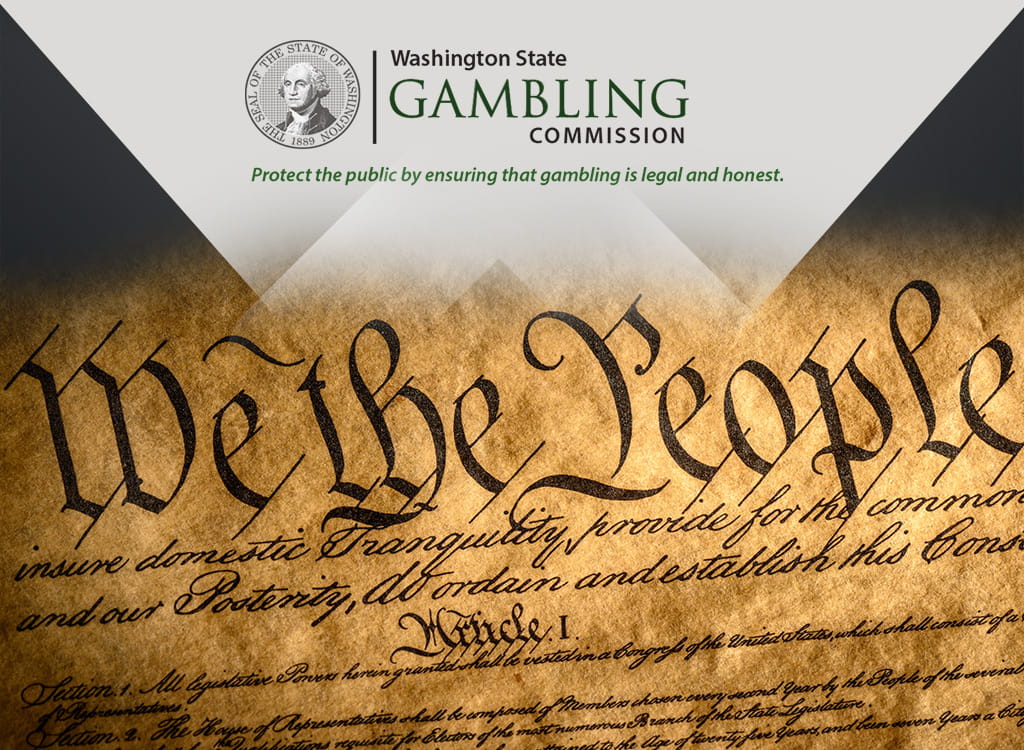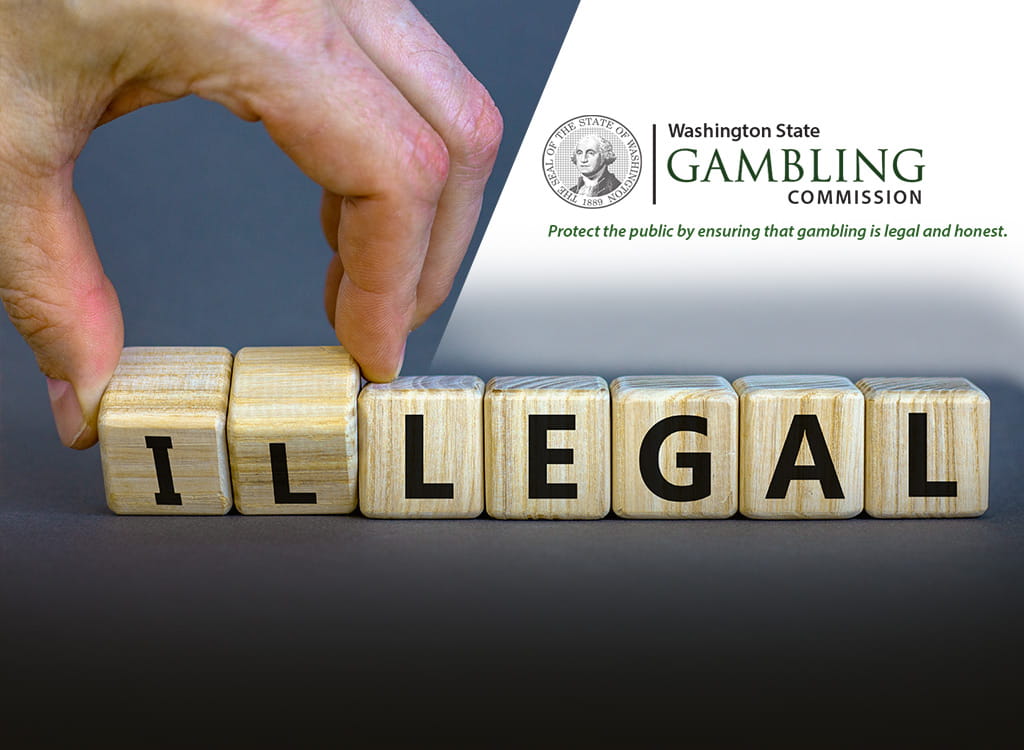Washington State Gambling Commission – Insight into the Authority
The Washington State Gambling Commission is the state’s gaming control board, responsible for enforcing gambling laws and regulations. Join us as we will discuss everything important that surrounds Washington’s gambling authority.

What Are the Online Gambling Laws in Washington?
In this article, we will provide you with detailed information about the Washington State Gambling Commission. You will learn a great deal about the WA state gambling laws, regulations, and restrictions. We will discuss which gambling games are legal and explore where we can play them. This is always a necessity, especially when you want to practice safe gambling. To do all that, we will begin by going back to the very establishment of the Washington State Gambling Commission agency and explore its purpose and duties. Also, we will address the state’s gaming control board’s structure and discuss its means of operation. Such insights can be quite helpful, so don’t miss them out. Anyhow, let us begin!
What is the Washington State Gambling Commission?
As we briefly mentioned earlier, the Washington State Gambling Commission is an agency of the government of the State of Washington. It was initially founded in 1973 as the state’s gaming control board and was responsible for enforcing gambling laws and regulations. Interesting enough, the WA State Gambling Commission is the second oldest national agency that deals with regulating the state’s gambling industry.
Nowadays, the Washington State Gambling Commission functions as the state’s main gaming control board. It regulates all kinds of gambling activities within the state of Washington, including brick-and-mortar casinos as well as online gambling websites. That said, you can expect to find a WA State Gambling Commission license at all the best US online casinos that operate in Washington state.
About the WA State Gambling Commission Members
The WA State Gambling Commission is led by five enrolled members of the organization, called Washington State Gambling Commissioners. The governor personally appoints every single one of them, after the consent of the Senate, for a six-year term. During their office, the WSGC members take the positions of chairman, vice-chair, three commissioners, and one executive director.
In addition, the Washington State Gambling Commission enrols four ex-officials. They are appointed by the Speaker of the House of Representatives for a term of two years and do not have the right to vote on any legislation. Two ex-officials senate members of the majority political party and the minority political party. Any committee members can be reappointed unless they have acted contrary to their duties or have committed a crime.

However, the commissioners and ex-officials do not act alone. All decisions are taken with a quorum, where special gambling agents assist in the decision-making and oversee the work of different gambling facilities.
Before we move on, we would like to point out that any WA State Gambling Commission employee can be replaced for inefficiency, misuse of information, or corruption. If such changes occur, they need to be received by the governor and filed to the next instance.
Subsequently, the written charges are sent to the Chief Justice of the Supreme Court. Once received, the respectable authorities review the case. Depending on their conclusion, an action would take place. If the WSGC employee is found guilty, they will be removed from the current occupying position and will not be able to be reappointed ever again.
Washington State Gambling Commission’s Obligations
As you can imagine, the Washington State Gambling Commission has many responsibilities and obligations. First, the commission is tasked with overseeing the activity of gambling establishments across the state and supervising the licensed online casinos and sports betting sites.
The Washington State Gambling Commission is responsible for over 50 brick-and-mortar casinos and card rooms. If we count in all the online gambling operators that hold a license by the WSGC, the number will drastically increase even further.

Anyhow, some of WSGC’s main duties are to ensure the fairness and safety of gambling operators within Washington. The commission does so by granting licenses and revising them. Of course, if the holder does not abide by the rules and laws, the Washington State Gambling Commission will remove the gambling license.
Apart from granting licenses, the WA State Gambling Commission also regulates every activity of the casinos or gaming rooms in the state. Furthermore, the organization screens if its strict regulations and requirements regarding the building, employees, security, games, work uniforms, and others are met.
All requirements presented by the WA Gambling Commission are mandatory, and all licensed facilities and websites are obligated to comply. They must provide the WSGC with all needed information to perform their inspections, including hardware, software, books, premises, or any other requested data.
Looking into the WA State Gambling Commission’s Laws
According to the laws of the state of Washington, gambling facilities must apply and pay a fee for a Washington State Gambling Commission license. That is a common practice in many states; for example, all of the best online casinos in New Jersey have local gambling permits. Once the WA gaming permit expires, the license holder must request an audit for a renewal if they wish to continue their operation.
Additionally, every gambling operator is bound by the laws of Washington state to pay the taxes and contribute to the county as a WA State Gambling Commission’s community impact benefit. The regulations and methodology that the WA organization abides to follow the US gambling laws on a national level. That said, here is a short listing of the main legislations that all such Washington establishments must follow:
- Revised Code of Washington (RCW)
- Indian Gaming Regulatory Act (IGRA)
- Federal Gambling Laws
- The Professional & Amateur Sports Protection Act (PASPA)
- The Unlawful Internet Gambling Enforcement Act (UIGEA)
Before we move on to the next section, we must highlight that the laws apply not only to gambling websites and local establishments but also to players. All operators, as well as gamblers, must pay tax in accordance with their winnings. The exact tax differs from one city, county, and area to another.
WA State Gambling Violations and Illegal Activities
So far, we have established that the best casino sites cannot operate in Washington state as online gambling is prohibited. Therefore, Washington players are limited to playing at licensed brick-and-mortar casinos, card rooms, and other gambling establishments.
However, some US casinos operate without a Washington State Gambling Commission license for one reason or another. According to the government agency, that is amongst the most common illegal gambling activities that occur within the state of Washington.

Such lawbreaking operators often do not stop there. They might offer rigged games, where the house has a way higher chance of winning. Other illegal operators present their players with unfair promotions, which have impossible to meet requirements, conditions, and wagering requirements.
It has also been recorded that some fake online gambling websites are used to steal customers’ details. Such misuse of information can even result in account theft, money fraud, bribes, deceit, and more. Many of those illegal and treacherous US brick-and-mortar or online casinos take advantage of their situation and evade paying taxes, thus, withholding key income from the gambling community.
WA State Gambling Player Crimes
The illegal activity within the WA State Gambling Commission’s area of operation does not end with just the fake casinos and facilities. Some players attempt to take fate and luck into their own hands by getting an edge over the operator. Players’ most common unfair actions are cheating, underage gambling, and even hacking.
For example, if you are playing at any of the top licensed live US casinos, your details will be safe, while hacking and cheating will be virtually impossible. Therefore, such mischievous gamblers pick operators with less sophisticated defenses.
Card counting might also be considered illegal depending on the exact US state. Hence, some US casinos take different precautions to counter the card counters. Some of the most common methods to prevent card counting are for casinos to increase the number of active decks, regular shuffles, or the implementation of advanced shuffling machines.
Other crimes recorded by the Washington State Gambling Commission include obstruction of a public servant, bribing, extortion, illegal betting and gambling. For instance, some devious players use insider information about a rigged match or race to know the event’s outcome and bet accordingly.
Washington State Gambling Commission Audits
All forms of legal gambling are under strict control by the Washington State Gambling Commission. Current holders of the WA State Gambling Commission license are under regular inspections that aim to retain the high standard and guarantee fair play for customers. Simultaneously, inspectors evaluate the performance of the gambling establishment.
It is important to note that WA State Gambling Commission agents have the authority to perform private and public investigations. When WSGC agents work on a case for illegal gambling activity, the investigation is not announced in advance.
Their jurisdiction is usually within the borders of the Washington state, but on certain occasions, the WSGC agents can operate outside of state lines, for example, if an investigation involves any of the top online casinos in Pennsylvania. In such cases, the commission personnel coordinate their actions with the local gambling authorities or other Federal establishments.
Once a potential gambling crime investigation is done, the gathered information is brought to the Commission. Then, if needed, the case is taken to an administrative law judge who can conduct an open or closed public hearing. During the said hearing, all evidence is presented in court. If the investigated person or operator is found guilty, the judge may revoke their gambling permit or give another sentence.
WSGC Online Casino Games
If you prefer to stay on the right side of the law, you’ll need to make sure you are not playing the wrong games. For that reason, in the table below, you will be able to see what gambling genres and games are legal and illegal to be played in the state of Washington.
| Bookmaking | ❌ |
|---|---|
| Animal Fighting | ❌ |
| Slot Machines | ❌ |
| Card and Dice Games | ✔️ |
| Professional Gambling | ❌ |
| Online Gambling | ❌ |
| Video Poker | ❌ |
| Antique Slot Machines | ✔️ |
| Sports Wagering | ✔️ |
As you can see from the table above, most forms of gambling are strictly forbidden and illegal in the state of Washington. If that seems confusing, we are here to clarify the matter. Essentially, gambling in Washington is unlawful unless the activity is specifically authorized by state law. Only gambling facilities that have received the Washington State Gambling Commission license are eligible to offer any gambling games.
That said, let us quickly go through the gambling types from the table above. Bookmaking, animal fighting, as well as slot machines, video poker, video pull-tabs, pachinko, Pachislo machines, and other electronic games of chance are completely illegal in WA. In contrast, possessing an antique slot machine is legal if it is at least 25 years old and is not used for gambling purposes.
In addition, sports wagering is also considered illegal by the WSGC, with the only exception being the 100-square sports pool boards under restricted conditions. Finally, card and dice games are legal to be played in card rooms with an active WA State Gambling Commission license.
Frequently Asked Questions
To wrap up our article on the Washington State Gambling Commission, we decided that the best way to do so is by gathering some of the the most popular questions asked by American players. Not only that, but we will provide you with answers to every single query.
1️⃣ Is gambling legal in Washington state?
Some forms of gambling are legal in the state of Washington. However, the WA State Gambling Commission has clearly stated which gambling games are legal and which are not. If you want to be certain that you are not breaking the law while gambling, make sure that the operator you are playing at has an active WSGC license.
2️⃣ What are the Washington State Gambling Commission's obligations?
Some of the WA State Gambling Commission's obligations include overseeing the activity of gambling establishments, testing gamesauditing operators and granting gambling licenses. If the gambling establishments fail to keep the agency's high standard, the WSGC removes their permits.
3️⃣ Is online gambling considered legal by the Washington State Gambling Commission?
According to the Washington State Gambling Commission, online gambling is illegal. That leaves only brick-and-mortar operators eligible for obtaining a gambling license from the government agency. Because of that limitation, some online casinos have chosen to violate the state's gambling law, thus, evading taxes as well.
4️⃣ What is the most common gambling crime committed by players?
The most common crime committed by players is cheating the casino. In addition to that, some of the other violations of the WSGC law include underage gambling, counting cards, bribing, or even participating in or organizing illegal gambling events.
5️⃣ Are WSGC investigations and inspections announced in advance?
To ensure that high standards are kept in order, the Washington State Gambling Commission conducts regular inspections and evaluations that are announced in advance. However, some forms of WSGC audits and investigations, are kept in secret, especially if the government agency has some suspicion of illegal gambling activity.
